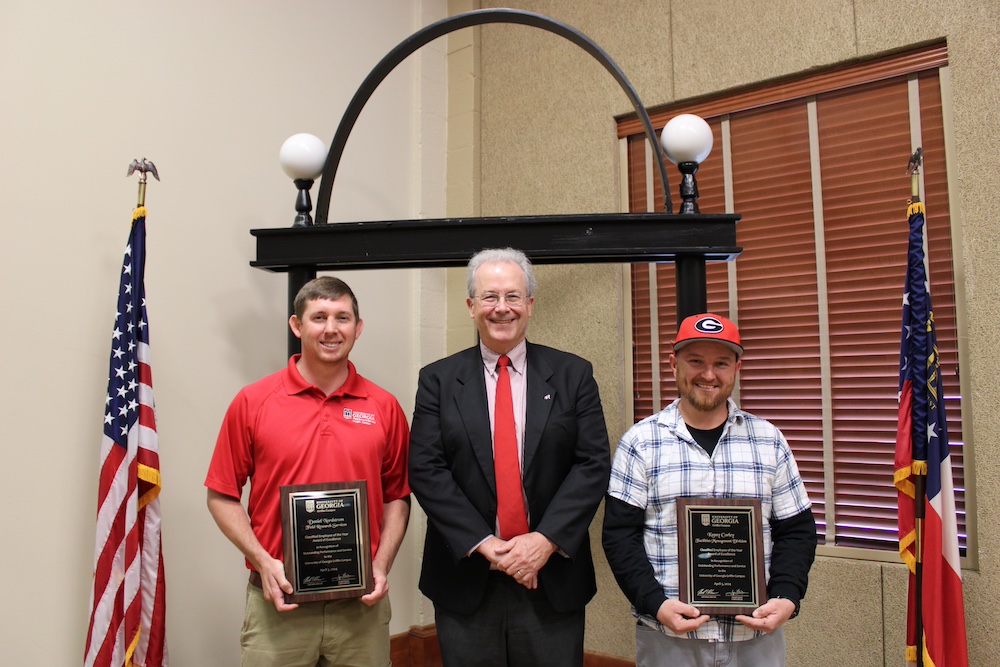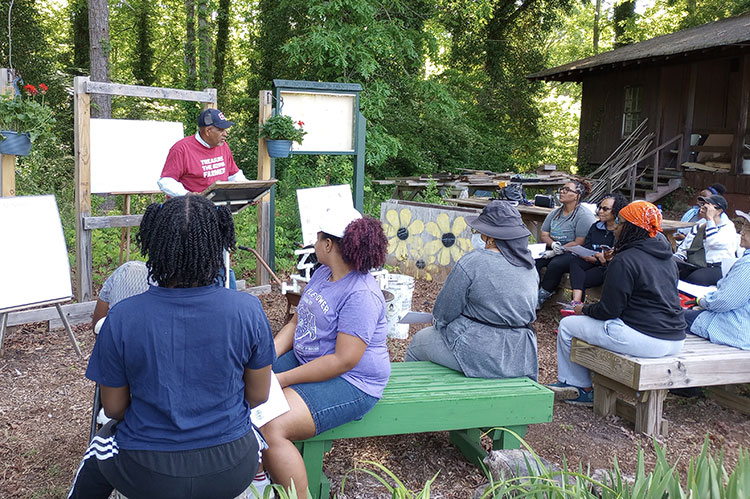The U.S. Department of Agriculture has set the national basic quota for this year at 582 million pounds, about 33 million pounds more than in 2001.
"Looks like we'll have a 6-percent increase in the basic quota that can be produced in Georgia," said J. Michael Moore, a tobacco scientist with the UGA Extension Service.
But there won't be 6 percent more acres of tobacco grown or sold in Georgia this year. The basic quota is only the starting point.
Last year, growers sold 3 percent more than the 2001 quota. "That 3 percent comes off this year," Moore said. So, theoretically, this year's increase will actually be 3 percent.
But this is still misleading. Growers have "quite a bit" of 2001 tobacco that hasn't been sold yet, Moore said.
Because of the overselling in 2001 and the tobacco left on farms, there's a good chance the 2002 crop will actually be less than in 2001, Moore said.
Georgia growers will plant between 26,000 and 27,000 acres of tobacco this year.
Tobacco is grown on only a small portion of Georgia's 10 million acres of farmland. But it's still a profitable crop, said Bill Givan, a UGA Extension Service economist. In terms of its farm-gate value, it's the state's third-leading field crop, bringing in $120 million in 2000.
The average price support for the 2002 crop will be $1.656 per pound, or 0.4 cents per pound less than last year.
However, growers should get the same amount of return for the crop this year, Givan said. Production costs should be slightly less in 2002, making the net return on investment about the same as last year.
USDA figures the tobacco quota by adding cigarette makers' buying intentions to the three-year tobacco export average, then subtracting the leaf held by the Tobacco Cooperative Stabilization Corporation.
Stabilization, as it is known, directs the price support program for tobacco under contractual agreement with the USDA.






